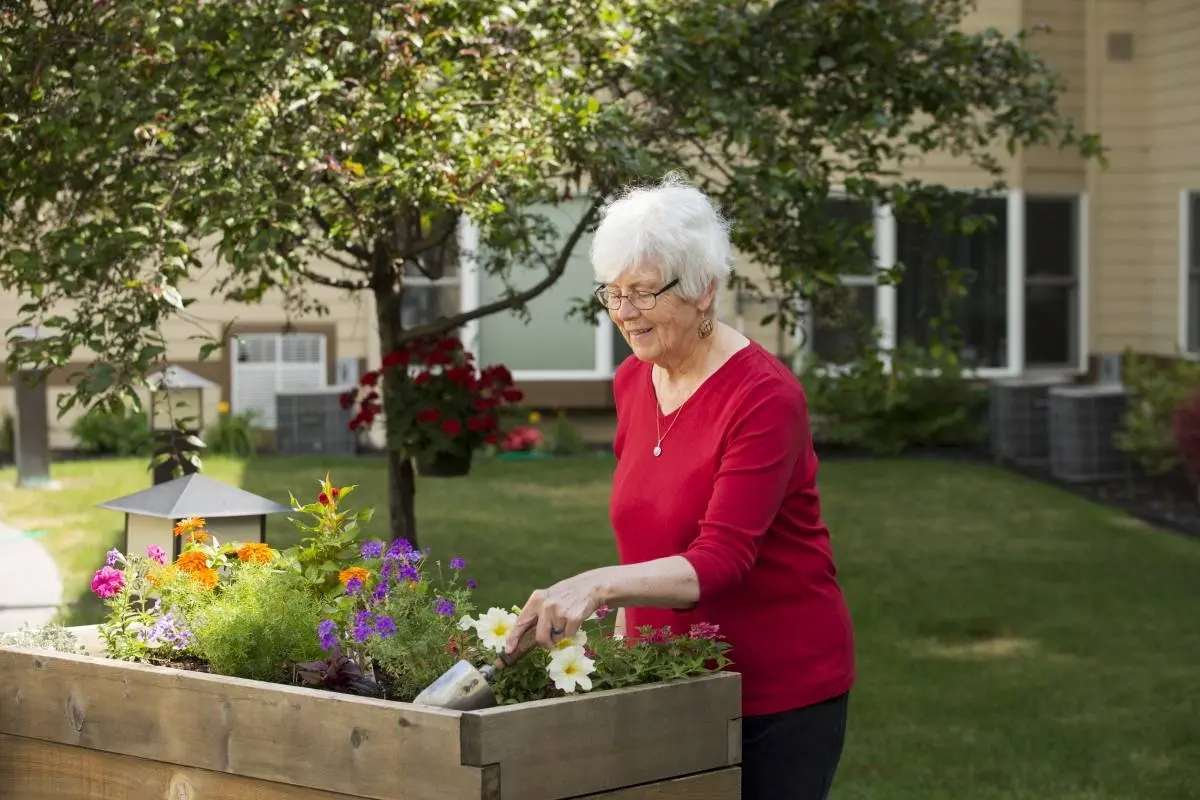All About Memory Treatment Providers: Why Tiny Memory Treatment Residences Are a Wonderful Selection
Memory care solutions play a vital duty in supporting people with Alzheimer's and dementia. Small memory care homes attract attention for their tailored technique and intimate setting. With reduced staff-to-resident proportions, these homes promote stronger connections and customized treatment. Citizens benefit from enhanced social interactions and a risk-free environment. As family members discover choices, comprehending the unique advantages of small memory care homes ends up being vital. What factors should be considered when selecting the ideal home?
Understanding Memory Care Services
While numerous may know with basic elderly treatment options, understanding memory care solutions is crucial for households facing the difficulties of cognitive decline. Memory treatment especially deals with individuals with conditions such as Alzheimer's disease and other forms of dementia. These services supply a structured atmosphere that concentrates on enhancing the high quality of life for homeowners via specialized treatment and support.Memory care facilities are made to assure safety and security, frequently featuring safeguarded environments to stop straying. Trained team member are available around the clock to help with everyday tasks, drug administration, and personal treatment. Additionally, memory care programs usually consist of cognitive stimulation tasks, tailored to involve residents and promote psychological health. Households can benefit from recognizing these solutions, as they enable educated choices regarding their enjoyed ones' treatment, making sure that their particular requirements and preferences are resolved in a helpful and caring fashion.
The Benefits of Small Memory Treatment Residences
Tiny memory care homes use distinct benefits that can considerably boost the lifestyle for homeowners with cognitive disabilities. One considerable advantage is the intimate setting, which enables tailored communications among personnel and residents. This smaller sized setup fosters meaningful relationships, minimizing feelings of seclusion and anxiousness often experienced by people with memory issues.Additionally, the reduced staff-to-resident ratio in tiny memory treatment homes enables caretakers to give even more alert supervision and support. This strategy not only enhances safety however also advertises a sense of safety and security for the residents.Moreover, little memory treatment homes can adjust rapidly to the one-of-a-kind requirements and preferences of each local, permitting a more homelike ambience. Such a setting can motivate social interaction and participation in activities, eventually enriching the everyday experiences of those coping with cognitive disabilities.
Personalized Care Plans for Homeowners
Personalized care strategies are important in memory treatment homes, as they deal with the unique requirements and preferences of each local. These strategies begin with extensive assessments performed by proficient professionals, that assess cognitive abilities, medical background, and individual interests. This tailored approach guarantees that care is not just effective however additionally respectful of each individual's self-respect and autonomy.Moreover, customized treatment strategies are flexible, enabling changes as locals' demands evolve gradually. This flexibility fosters a feeling of safety and security and experience, which is important for individuals dealing with memory challenges. Caregivers are educated to implement these strategies consistently, offering support that aligns with the locals' routines and preferences.Ultimately, individualized treatment strategies boost the lifestyle for residents by promoting freedom, health, and interaction, making them an essential element of memory care services in tiny memory care homes.
Producing a Home-Like Environment
Producing a home-like setting is essential for fostering comfort and knowledge in memory treatment settings, as it substantially influences locals' psychological well-being. Small memory care homes frequently prioritize tailored touches, such as cozy color palettes, family members pictures, and familiar furnishings arrangements, which aid homeowners feel more comfortable. Integrating elements similar to a traditional home, like comfy home and public areas, urges a feeling of belonging.Moreover, utilizing all-natural light and outdoor rooms can enhance the atmosphere, promoting leisure and serenity. Personnel play a substantial role in preserving this atmosphere by involving with homeowners in a compassionate fashion, treating them like family. Routine activities, such as cooking or horticulture, can likewise add to a home-like feeling, offering chances for residents to join purposeful experiences. Generally, developing a supporting setting sustains cognitive function and emotional stability, making it a crucial facet of memory treatment solutions.
Enhanced Social Communication and Area
Boosted social interaction and neighborhood are vital elements of memory care solutions. By cultivating personalized social interaction and creating a family-like atmosphere, these services promote significant links among locals. Group occasions and activities even more motivate involvement, aiding people feel much more included and supported.
Individualized Social Involvement
While social communication is crucial for overall well-being, numerous individuals with memory impairments usually battle to involve meaningfully with others. Personalized social involvement in memory treatment homes addresses this difficulty by producing customized activities that provide to locals' distinct passions and capacities. By concentrating on specific preferences, caretakers can foster links that reverberate deeply with each person. Tasks such as art therapy, songs sessions, and guided conversations promote cognitive excitement and psychological expression. Additionally, tiny team settings motivate sociability and permit more intimate interactions, boosting feelings of belonging. This approach not only combats sensations of seclusion however also empowers locals to maintain a sense of identity, eventually adding to enhanced mental health and lifestyle.
Family-like Atmosphere
In a memory care setup, cultivating a family-like ambience significantly boosts social interaction and constructs a sense of area among homeowners. Smaller memory treatment homes commonly prioritize intimate atmospheres, enabling homeowners to form closer links with each other and personnel participants. This nurturing environment promotes count on, which is important for people with memory disabilities. Citizens are more likely to involve in conversations and share experiences, creating a supportive network that alleviates small memory carehomes Charlotte feelings of solitude. The knowledge of shared spaces and routines contributes to a feeling of belonging, even more motivating social communication (personalized memory care). In such setups, emotional bonds flourish, bring about boosted general wellness and a higher top quality of life for locals as they browse their daily experiences together
Team Activities and Occasions

Safety And Security and Safety And Security Attributes in Little Houses
Numerous small homes made for memory care integrate important security and security attributes to ensure the health of homeowners. These homes typically utilize safe access and departure points to stop wandering, a typical problem amongst people with memory disabilities. Furthermore, monitoring systems and alarm systems improve surveillance, ensuring that team can quickly reply to any kind of unusual activities.Interior designs are tailored for security, with lessened risks such as clutter-free paths and sharp edges. Handrails and non-slip flooring are commonly mounted to reduce the risk of drops. Personnel are trained in emergency situation protocols, ensuring they are gotten ready for numerous situations.Moreover, customized treatment plans may consist of evaluation of specific safety and security requirements, giving tailored solutions for every homeowner. Generally, these security and security features develop a nurturing setting where homeowners can flourish while maintaining their dignity and self-reliance.
Exactly how to Select the Right Memory Care Home
Just how can family members ensure they choose one of the most appropriate memory treatment home for their enjoyed ones? The decision requires cautious consideration of several elements. Initially, family members need to assess the facility's staff credentials and training, guaranteeing that caretakers are experienced in taking care of memory-related conditions. Next, it's vital to evaluate the home's setting, concentrating on safety and security features and whether it promotes a feeling of neighborhood and belonging. Seeing the facility can give insight into everyday tasks and the social environment, which are important for mental excitement and psychological wellness. Furthermore, households need to ask about the care plans supplied, guaranteeing they are tailored to individual demands. Lastly, thinking about the home's place and access for family members brows through can add to a smoother shift. By attending to these elements, households can make an educated decision that prioritizes their loved one's comfort and quality of life in a memory treatment setting.
Regularly Asked Questions
What Qualifications Should Team Members in Memory Treatment Residences Have?
Team member in memory treatment homes must have pertinent certifications, experience in dementia care, strong interaction skills, and concern. Continuous training in behavioral monitoring and restorative treatments boosts their capability to sustain locals effectively.
Just How Do Memory Care Services Differ From Traditional Assisted Living?
Memory care services focus specifically on people with memory impairments, supplying customized support and structured atmospheres. On the other hand, traditional assisted living supplies basic help with everyday tasks, lacking the tailored method necessary for those with cognitive obstacles.
What Kinds of Activities Are Used in Memory Treatment Residences?
Memory care homes typically provide a selection of activities created to engage homeowners. Common choices consist of art treatment, music sessions, cognitive video games, workouts, horticulture, and social occasions, all aimed at enhancing well-being and cognitive feature.
Can Locals Bring Their Own Belongings to Memory Treatment Residences?
Residents can commonly bring their very own valuables to memory care homes, permitting them to personalize their space - personalized memory care. This method aids produce an acquainted setting, advertising comfort and a sense of identification for the individuals

How Are Member Of The Family Associated With the Treatment Process?
Household participants play an important function in the treatment procedure, often taking part in decision-making, attending care conferences, and supplying emotional support. Their involvement promotes a collaborative environment, boosting the resident's overall health and lifestyle. While several might be acquainted with general elderly treatment choices, recognizing memory treatment services is important for family members encountering the obstacles of cognitive decrease. These solutions offer an organized atmosphere that focuses on improving the high quality of life for locals via specialized care and support.Memory treatment facilities are created to guarantee safety and security and safety, often including secured environments to avoid straying. Individualized care plans are important in memory care homes, as they provide to the one-of-a-kind needs and preferences of each homeowner. Personnel members in memory care homes should have pertinent certifications, experience in dementia care, solid interaction skills, and empathy. Memory treatment services concentrate specifically on individuals with memory impairments, giving specialized assistance and organized settings.